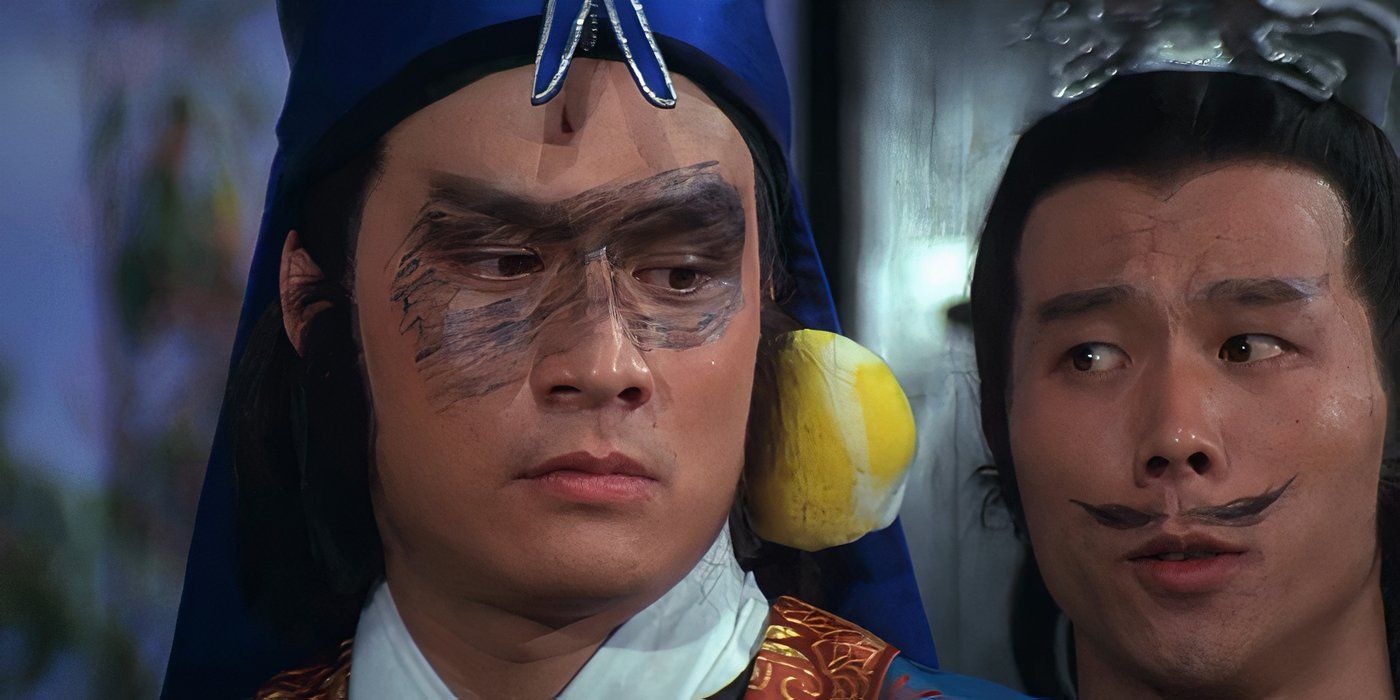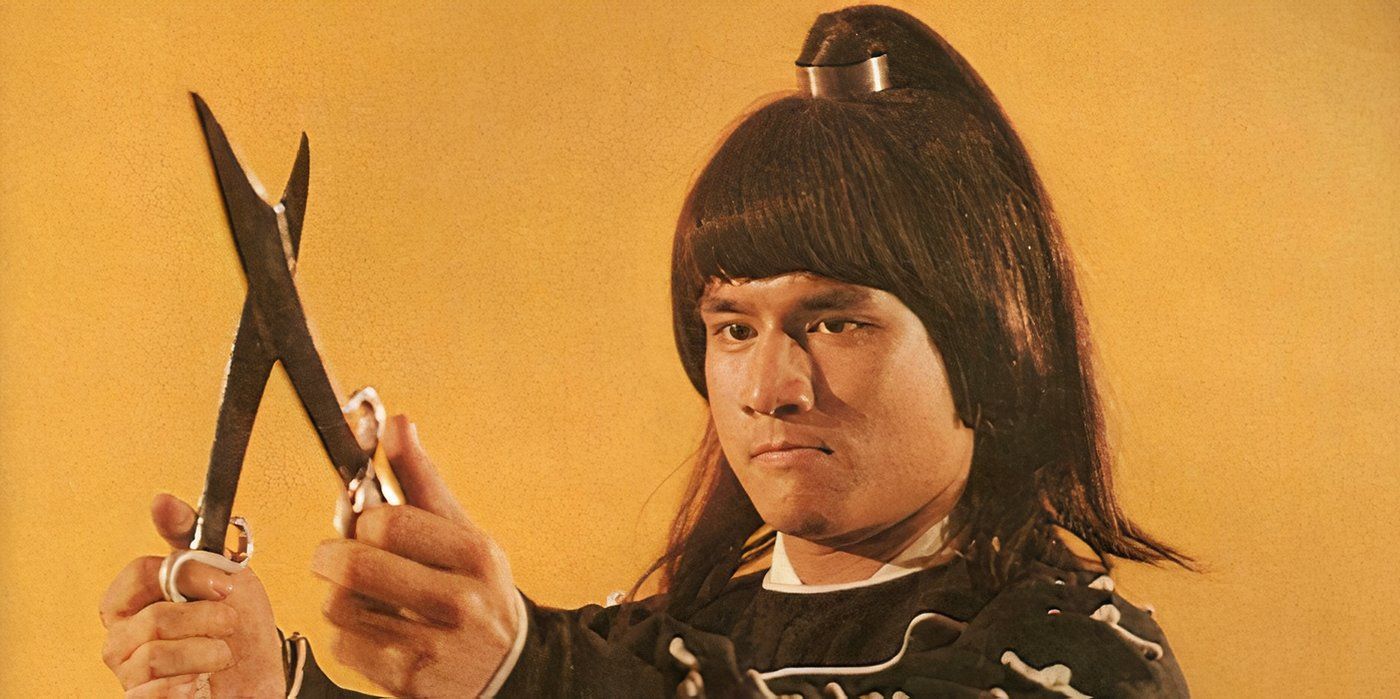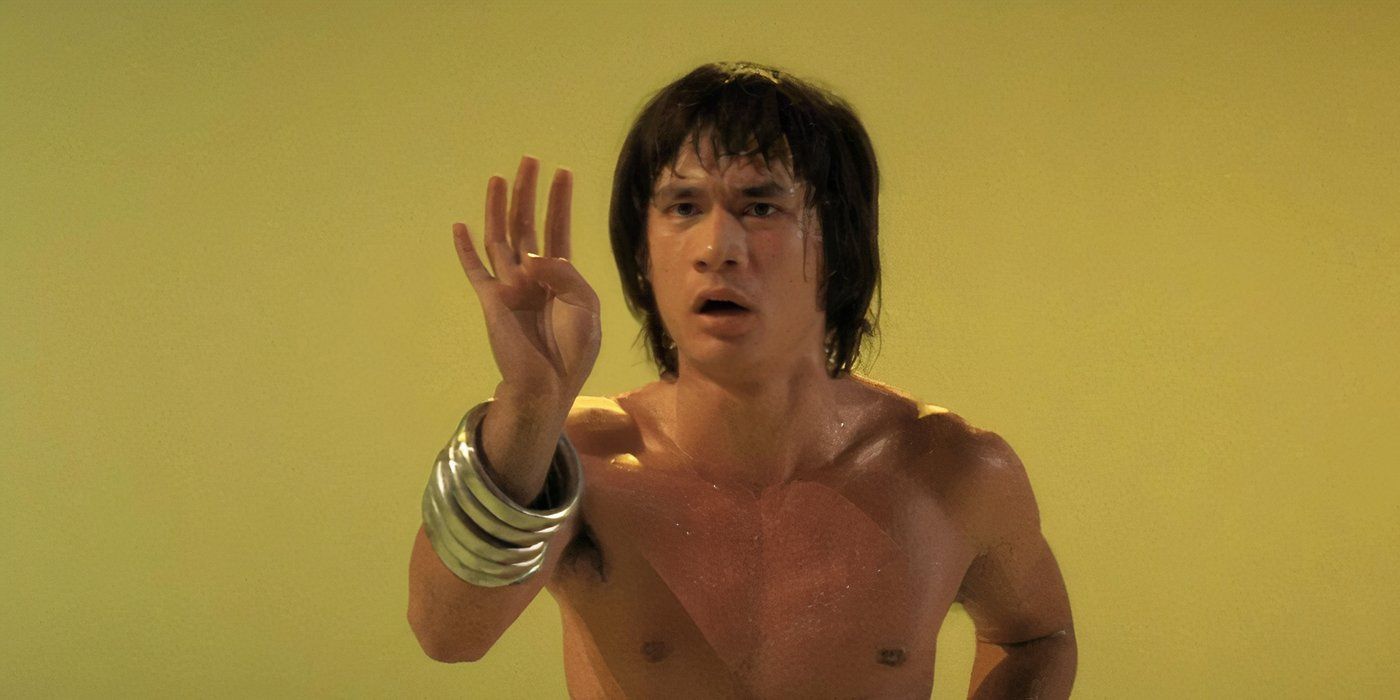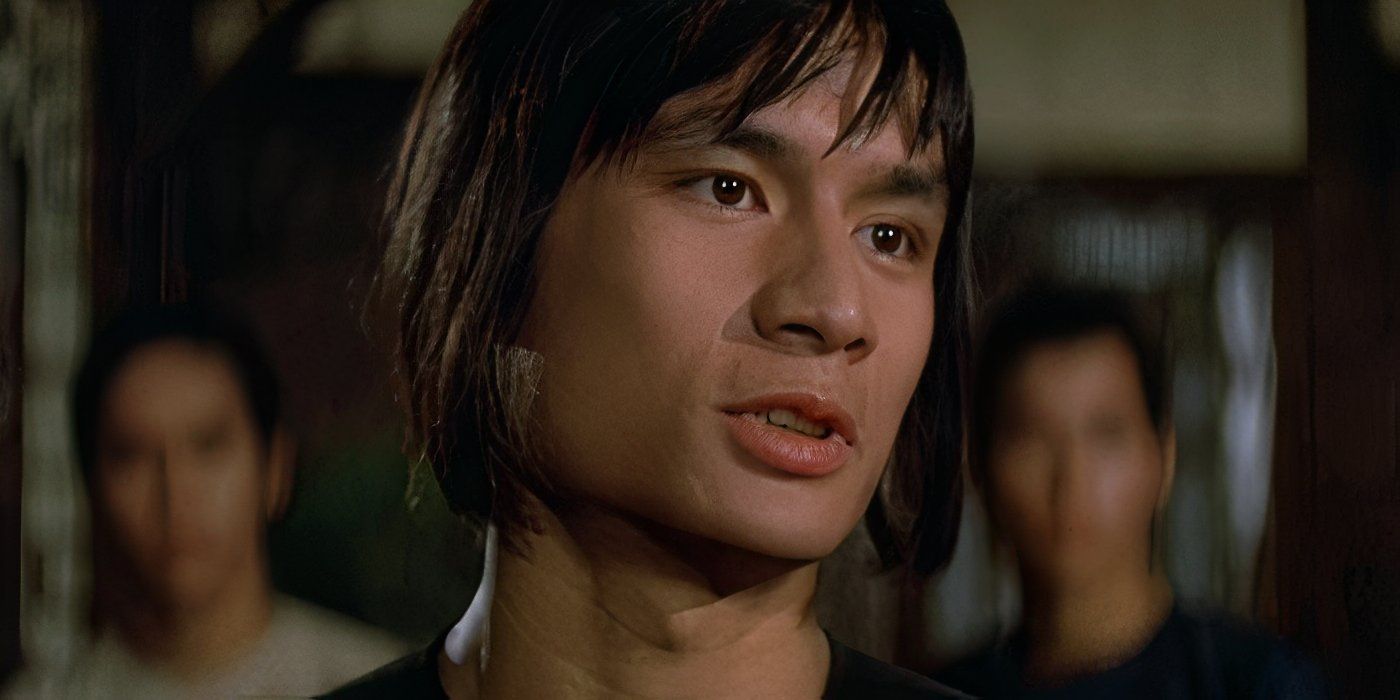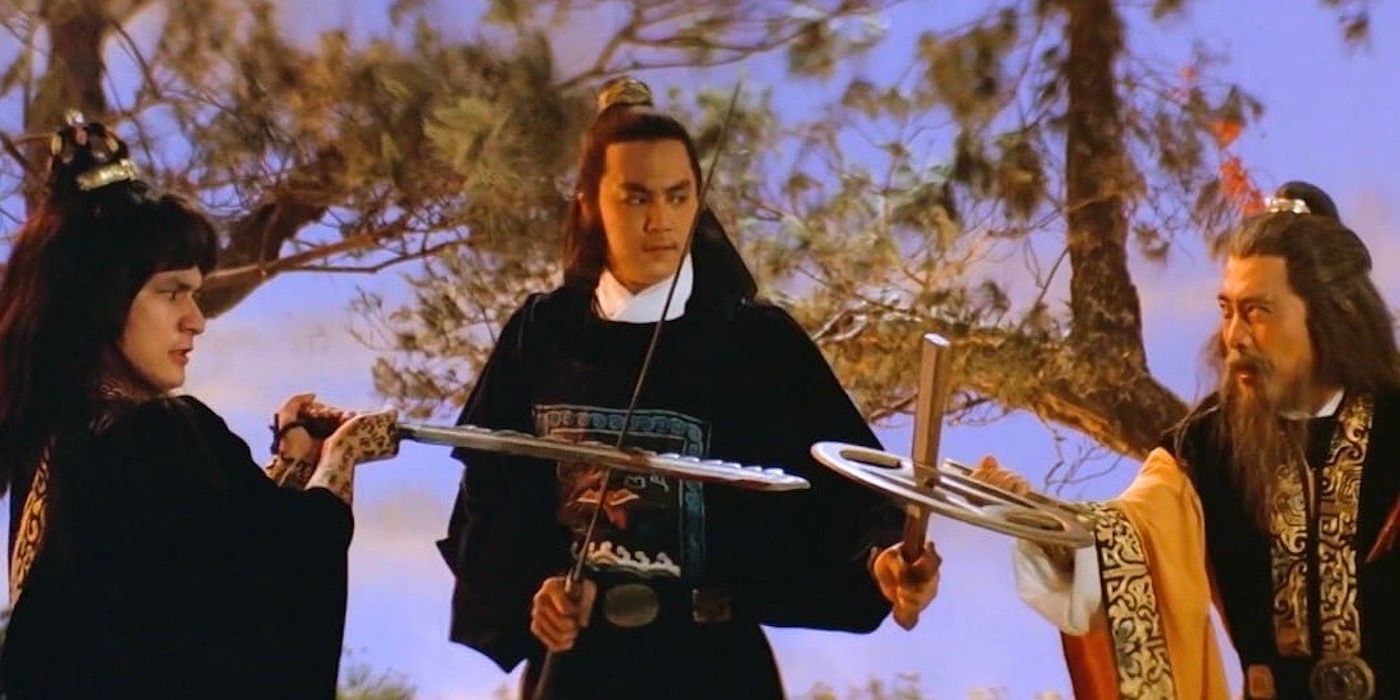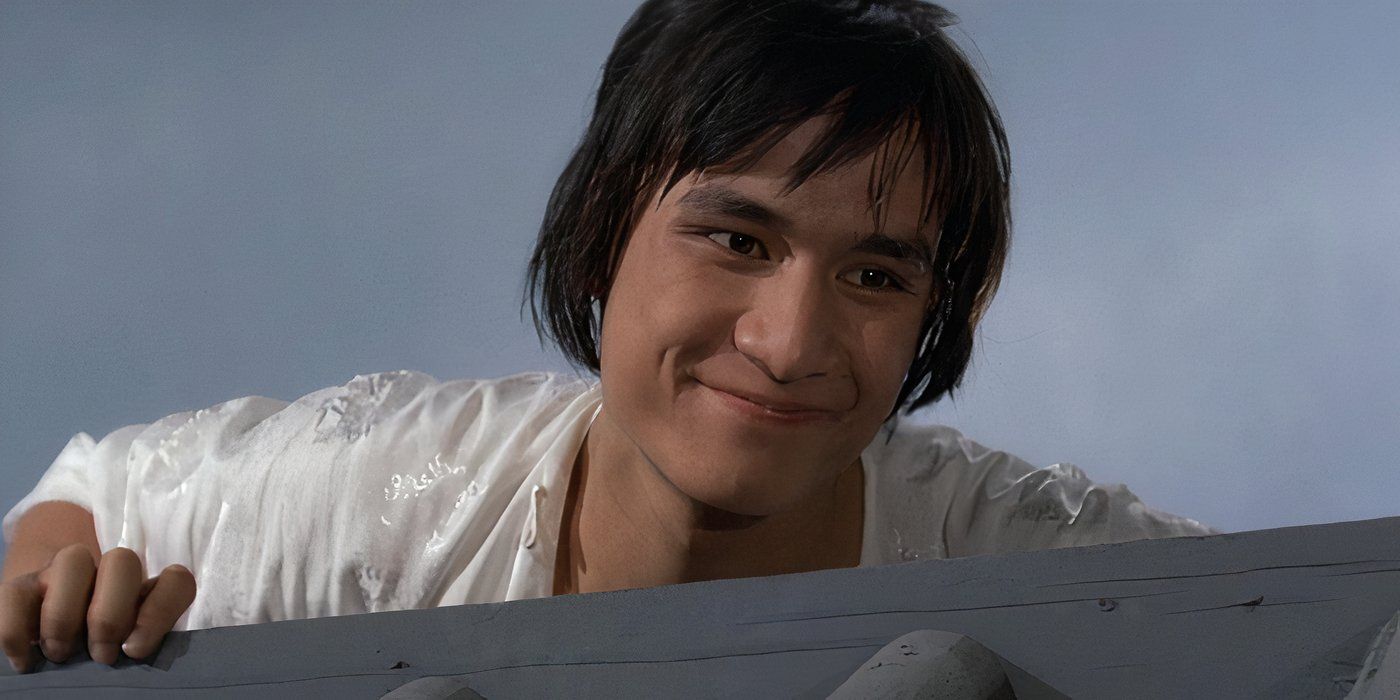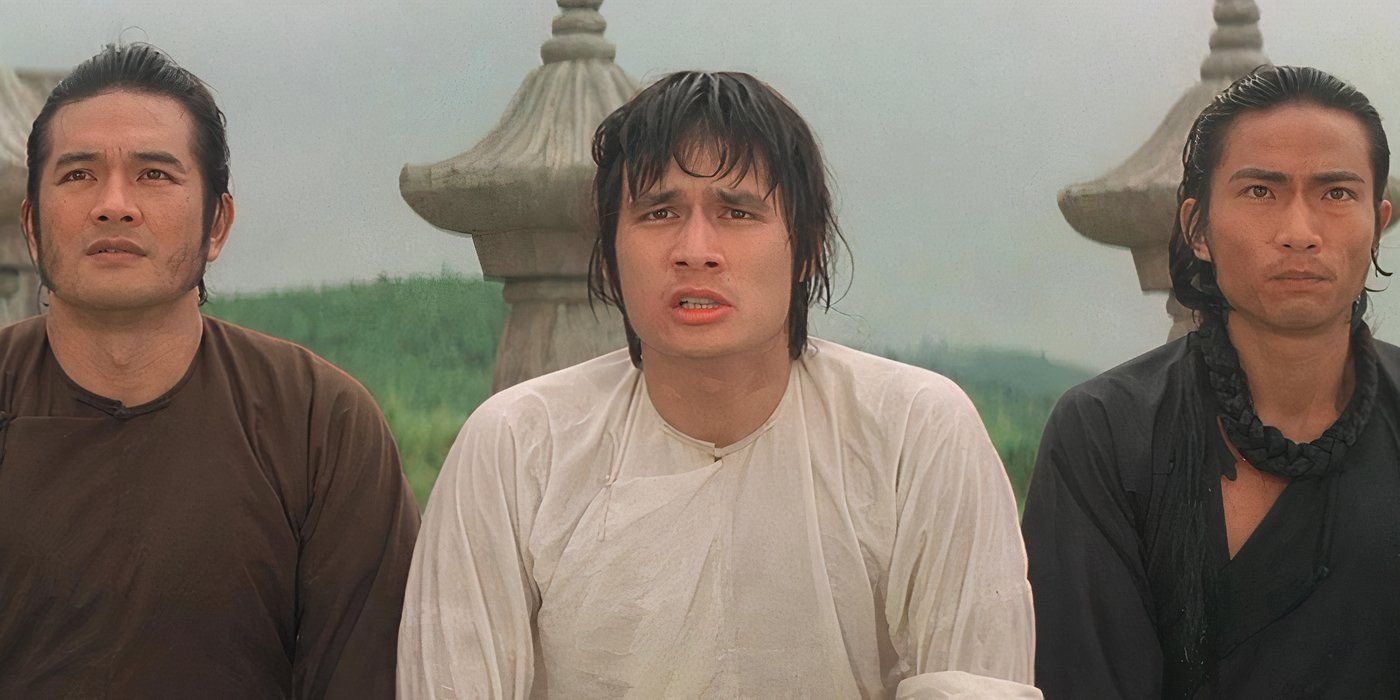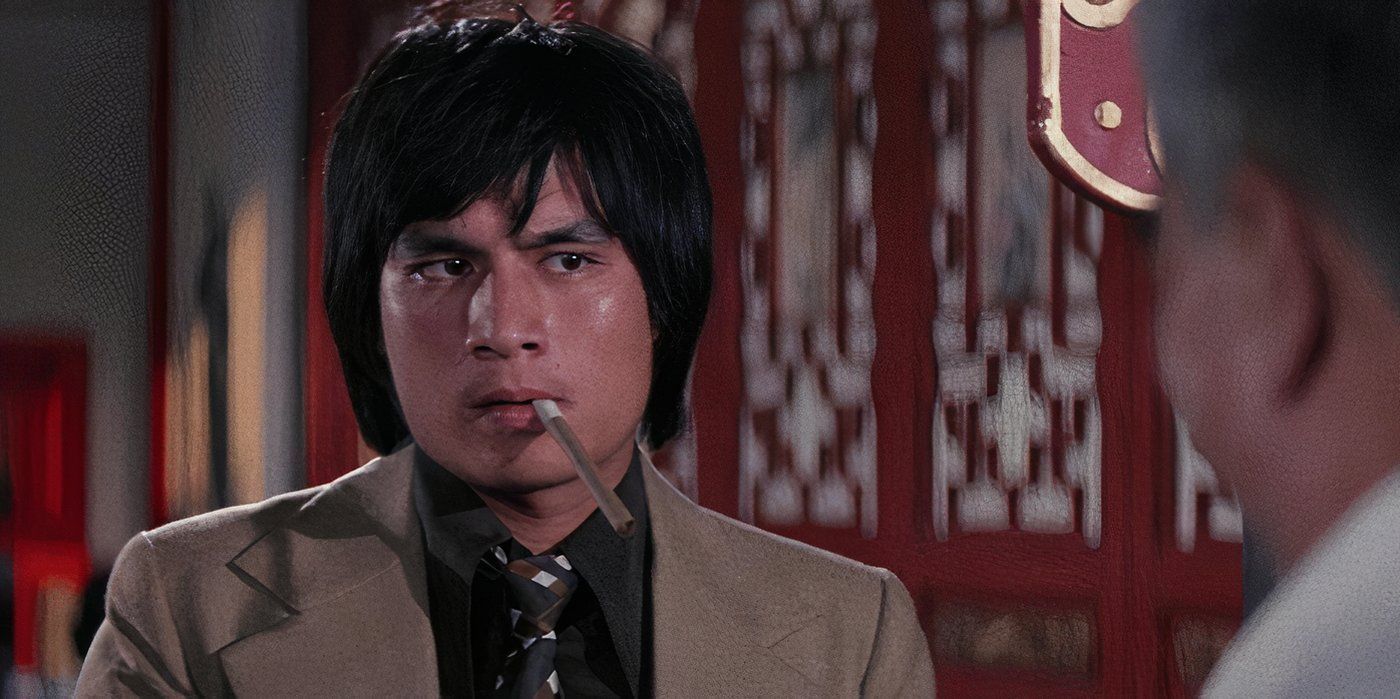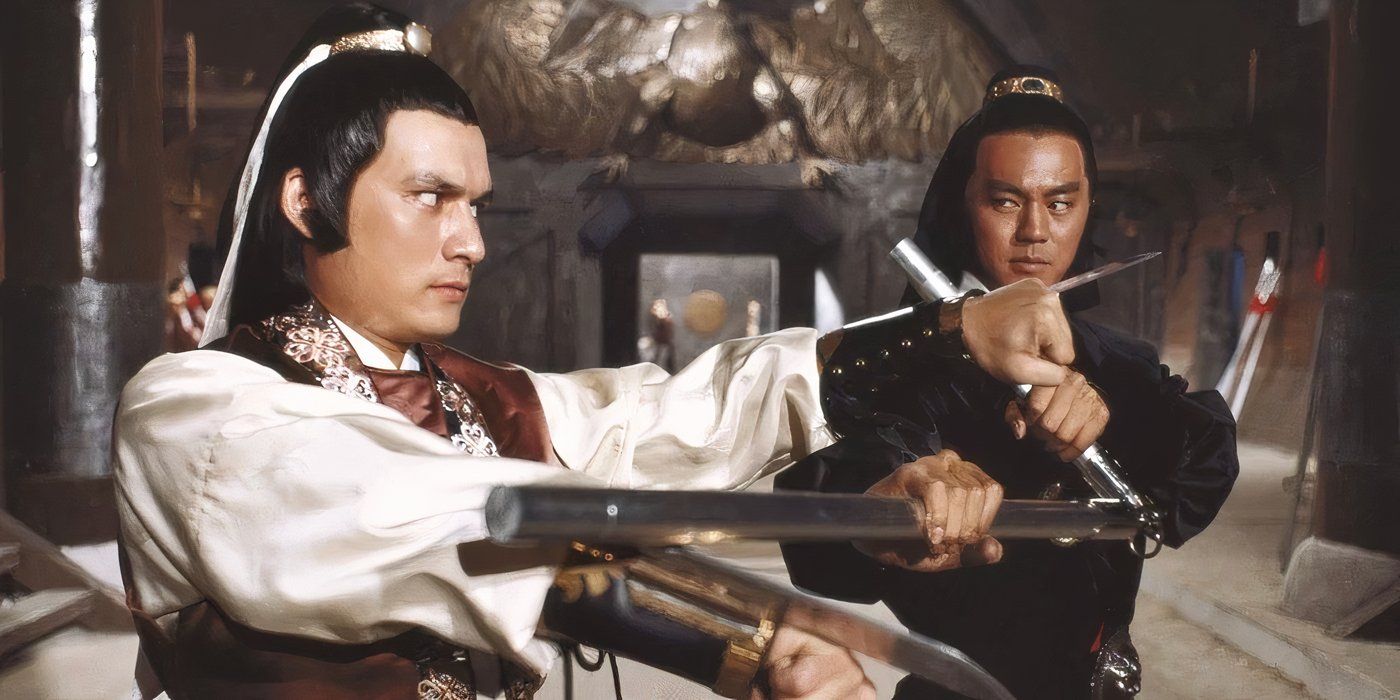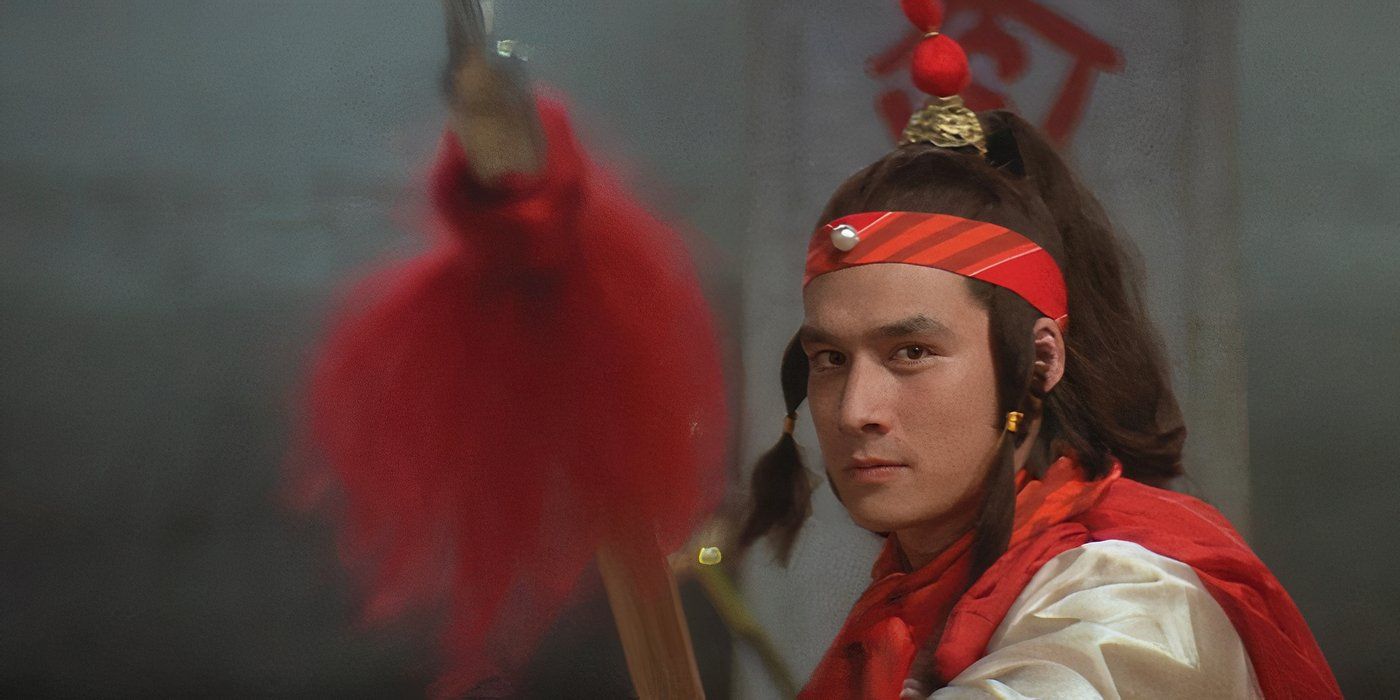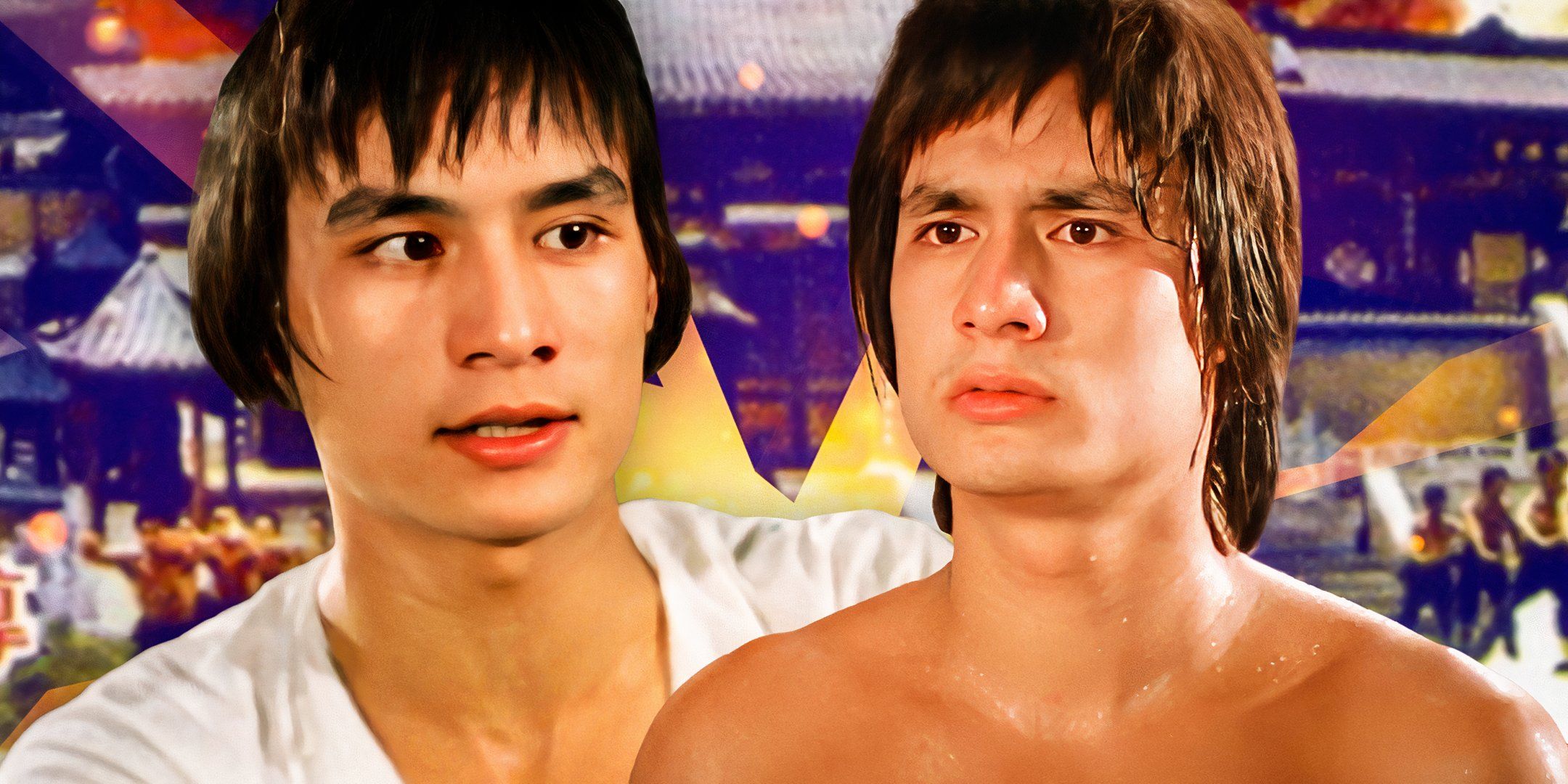
Although his acting career was cut short after his untimely death, Alexander Fu Sheng is still remembered for the memorable kung fu films in which he appeared. As a teenager, Fu Sheng enrolled at Shaw Brothers Drama School and signed a 3-5 year contract with the production studio, soon becoming one of many recurring actors to appear in Shaw Brothers films. Frequent collaborators throughout Fu Sheng's career include director Chang Cheh, the Shaw Brothers, and martial arts choreographer Lau Kar-leung.
Each person helped Fu Sheng develop his skills as an actor and martial artist. The best of Fu Sheng's kung fu films demonstrate the quality of his skill and the potential he had build a career comparable to that of someone like Jackie Chan. Fu Sheng was never able to reach the career heights of cinematic martial artists like Bruce Lee. Still, critics and film directors drew comparisons between the two after Fu Sheng's death - noting that his youthful star power will continue to inspire the public to discover your work for the first time.
10
Cat vs. Mouse (1982)
How to Baak Juktong
Based on the wuxia novel, The Seven Heroes and Five Gallants, Cat vs. Mouse is an exciting film that mixes comedy and martial arts. The film's name comes from the nicknames given to its main characters - Zin Ciu, aka "Royal Cat" (Adam Cheng), and Baak Juktong, aka "Brocade Coated Mouse" (Fu Sheng). Given the emperor's nicknames, Fu Sheng's character becomes increasingly jealous of his long-time rival and plans to embarrass him in front of the emperor.
It is certain that the beginning Cat vs. Mouse is repetitive, as Cheng and Fu Sheng's characters are seen constantly chasing each other. However, the film is still fun and has some impressive martial arts choreography sprinkled throughout. Fu Sheng is playful on screen and it's almost impossible not to invest in his competitive relationship with Cheng's character..
9
Game of Life (1979)
As Yun Xiang
Fu Sheng star Game of life alongside other Shaw Brothers regulars such as Wang Lung-wei, Kara Wai Ying-hung and Kuo Chui. The latter appears in the film as Qiu Zi Yu, a blacksmith who recently retired from making various weapons for kung fu experts. However, Zi Yu is put back to work when several characters are after a stolen jade heirloom. One such character is Fu Sheng's Yun Xiang, an expert knife thrower.
Game of life is full of fascinating characters who are not entirely trustworthy as they have ulterior motives and are willing to put their lives on the line for the inheritance. As a result, it's easy to get lost Game of lifeat times, but attentive viewers are rewarded with a fast-paced, well-choreographed showdown that puts Zi Yu's created weapons to use in creative ways.
8
Shaolin Disciples (1975)
Like Guan Feng Yi
Famous martial arts choreographer Lau Kar-leung frequently collaborated with director Chang Cheh, one of their last collaborations being Shaolin disciplesstarring Fu Sheng. Shaolin disciples is a tragic rags-to-riches story about Guan Feng Yi by Fu Sheng. Starting out as an average textile factory worker, Guan Feng Yi quickly rises through the ranks by defeating workers from rival factories. However, Guan Feng Yi's new success is not what it seems.
Fu Sheng is great at Shaolin disciples. Both his acting and martial arts skills are highlighted in the film, showing a promising future for the actor. Fu Sheng is the driving force for much of the film and keeps the audience's eyes glued to the screen in a bloody confrontation at the end. A lot of Shaolin disciplesthe remaining action is subtle, which pairs well with the film's clever commentary on the treatment of the working class.
7
Shaolin Martial Arts (1974)
Like Li Yao
Directed by Cheh Chang, Shaolin Martial Arts sees a group of students working to defend their martial arts school against those who wish to destroy it. Fu Sheng stars in the film as Li Yao, one of the students, alongside Gordon Liu and Chi Kuan-chun. However Shaolin Martial Arts lasts almost two hours, the film gains momentum in a way that keeps the audience's attention. Students are sent to train with a martial arts master to perfect their skills so they can effectively defeat their enemies.
The training sequences are creative and engaging as the audience can follow the student's progress throughout the film. When it's time to show off your skills during the movie's anticipated showdown Shaolin Martial Arts turns into a fun and violent showcase that highlights the actors' skills as martial artists. Fu Sheng's performance in the film doesn't stand out much from the rest of his filmography, but it easily stands up to his best.
6
The Return of the Sentimental Swordsman (1981)
Like Jing Wuming
Acting as the sequel to the 1977 film The Sentimental Swordsman, Return of the Sentimental Swordsman it became one of the Shaw brothers' fastest-growing films and surpassed the original's numbers. Return of the Sentimental Swordsman sees Ti Lung and Fu Sheng reuniting after films like Ten Tigers of Kwangtung and The Avenging Eagle. This time, the actors are enemies on screen, with Fu Sheng's Jing Wuming interested in defeating Ti Lung's Li Xunhuan, an acclaimed fighter.
Fu Sheng shows he has range as an actor in Return of the Sentimental Swordsman. Normally a charismatic and heroic protagonist, Fu Sheng is wonderfully villainous in the movie wuxia. Additionally, Return of the Sentimental Swordsman is packed with compelling performances, one of which is Ku Feng as Shangguan Jinhong, the adoptive father of Fu Sheng's on-screen character and the leader of the ruthless Money Clan who wants to dethrone Li Xunhuan.
5
Heroes Two (1973)
As Fang Shi-yu
Early in his kung fu film career, Fu Sheng made his first on-screen appearance as Fang Shi-yu in the film Heroes Two. The actor made good use of his recent kung fu training with Lau Kar-leung and made a huge impact on the film. Heroes Two begins with Fang Shi-yu and Hung Si-kuan (Chen Kuan Tai) being pitted against each other after the former is led to believe that Hung Si-kuan is a bandit.
Fang Shi-yu's misguided betrayal acts as a strong emotional force that compels the audience to invest in the film's narrative and motivates the film's characters to redirect their focus on defeating the Manchurian army. Fu Sheng stands out in the action scenes within Heroes Two but also received critical praise for his portrayal of Fang Shi-yu. Fu Sheng's fascination with Heroes Two helped the film become a critical and commercial success.
4
Shaolin Temple (1976)
As Fang Shih-Yu
Shaolin Temple It's not a perfect martial arts film, but its few flaws don't minimize its overall excitement. The film centers on a Shaolin Temple that prepares to face members of the Qing dynasty. Fu Sheng stars in the film as Fang Shih-Yu, a semi-fictional Chinese folk hero. In the film, Fang is accepted into the temple and begins training. Much of the film is spent in training sequences, but as Shaolin Martial Arts, These sequences are set up in a way that effectively builds on the emotion leading up to the final confrontation.
Lots of criticism and criticism from the public about the state of the film Shaolin Temple It could benefit from a slightly shorter runtime and a more focused narrative that doesn't switch as often between supporting characters. Still, Fu Sheng gives a great performance in the film as a frustrated student who gradually transforms into a skilled fighter.
3
Boy from Chinatown (1977)
Like Tan Tung
In Chinatown BoyFu Sheng joins the famous Venom Mob, a group of actors who found fame after starring in Five deadly poisonsin a story about rival gangs. In the film, Fu Sheng plays Tan Tung, a martial arts street fighter who joins a powerful gang in San Francisco led by the boss White Dragon (Philip Kwok). As Shaolin disciples a few years earlier, Fu Sheng's role in Chinatown Boy it's mature and, at times, dark.
As a result, Fu Sheng was able to prove his abilities as an artist in addition to his physicality and martial arts skills - which are still on full display in Chinatown Boy. Having already gained some international attention with previous films Fu Sheng gained further recognition in other parts of the world, including the United States, following his work on Chinatown Boy. The film became a cult classic in the country, and many felt it made subtle comments on Chinese-American works and the illusion of the American dream.
2
The Avenging Eagle (1978)
As Cheuk Yi-fan
The Avenging Eagle is among the best films produced by Shaw Brothers Studio and shows Ti Lung and Fu Sheng teaming up to defeat a common enemy. Ti Lung stars in the film as a former member of a powerful bandit group known as the Iron Boat Clan. After leaving the clan, Ti Lung's character is hunted by the group's leader and comes across a family member of one of his victims, Fu Sheng's Cheuk Yi-fan.
The story in The Avenging Eagle is one of the most compelling and well-written examples of Fu Sheng's filmographyas audiences will likely be invested in how the two men overcome their complicated history. Much of the intrigue is helped by Fu Sheng's chemistry with Ti Lung. The two actors pair well in both the chaos of the film's action scenes and the calmer moments, as they both open up about their troubled pasts.
1
The eight-diagram polo wrestler (1984)
As Yeung Chiu
Based on The Yang Family Generalsa collection of stories about the historic Song dynasty, The Eight Diagrams Polo Wrestler tells the story of the fall of a family at the hands of its enemies. The Yang family in the film is made up of seven children; the sixth is Yeung Chiu, played by Fu Sheng. The martial arts actor is supported by a host of talented performers, including Kara Hui, Hsiao Ho and Gordon Liu, who deliver an especially powerful performance.
Unfortunately, Fu Sheng died in a car accident before filming The Eight Diagrams Polo Wrestler was complete and he is absent from the film's intense final confrontation. Still, Fu Sheng makes an impact in the film, showing the emotional effects of the ambush on his family. The film rarely slows down and is filled with captivating, unrelenting action and violence, brought together by the collaborative efforts of the actors and Lau Kar-leung's direction and fight choreography.
